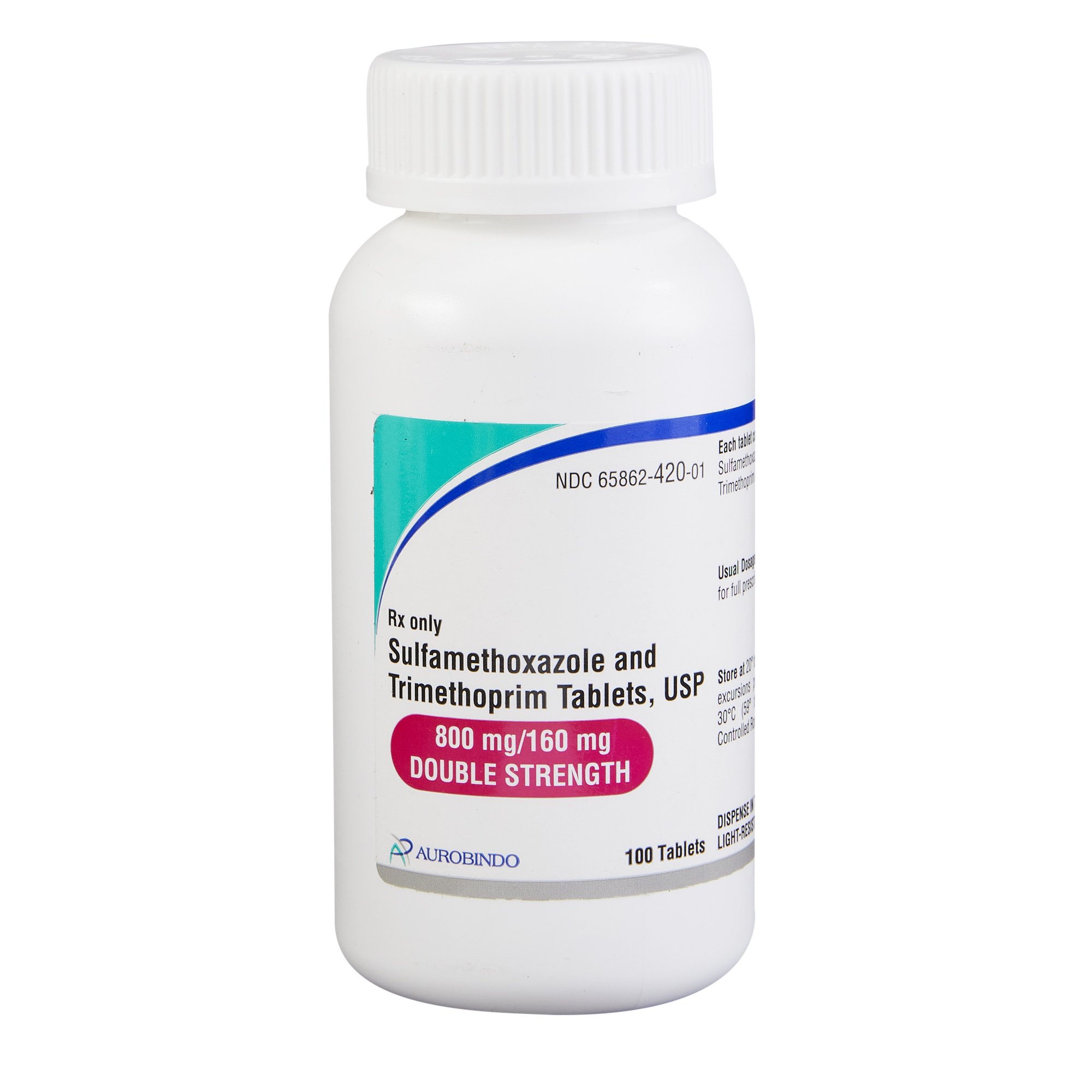
Sulfamethoxazole 800mg Trimethoprim 160mg - 5 Tabs
When you are suffering from gastrointestinal issues like Shigellosis or travelers’ diarrhea due to a specific bacterial infection, all you need is Sulfamethoxazole 800mg Trimethoprim 160mg - 5 Tabs pack from us. Complete the 5-day course, and you will be relieved from the stomach cramps associated with Shigellosis. The combination of antibiotics helps in speedy recovery as it starts working on your body within 1-4 hours of the medicine intake.- Description
- Additional Information
- Uses
- Interactions
- Side Effects
Dosage Information
For issues caused by mild bacterial infections leading to problems like Shigellosis, a course for 3-5 days is recommended. You can take a single dose every 12 hours. You have to complete the 5-tab course even after your situation improves after 2 to 3 days. Important Information
For issues caused by mild bacterial infections leading to problems like Shigellosis, a course for 3-5 days is recommended. You can take a single dose every 12 hours. You have to complete the 5-tab course even after your situation improves after 2 to 3 days. Important Information
- Keeping your body hydrated is absolutely necessary when you are taking the medicine for stomach issues. Make sure you drink plenty of water after you take each dose of Sulfamethoxazole 800mg Trimethoprim 160mg. It will help you to avoid the possibility of kidney stone formation.
- The antibiotics do not act similarly on viral infections. So, when you are about to take this medicine, make sure that you are taking it to treat a bacterial infection only.
- Drug Class: Sulfonamide antibiotic
- Chemical Formula: C10H11N3O3S
- Available Forms: Tablets, oral suspension, and intravenous (IV) formulations (usually combined with trimethoprim)
- Prescription Required: Yes
- Storage: Store at room temperature, away from light and moisture
Sulfamethoxazole (typically with trimethoprim) is used to treat a variety of bacterial infections, including:
- Urinary Tract Infections (UTIs)
- Bronchitis
- Traveler’s diarrhea
- Middle ear infections (otitis media)
- Pneumocystis jirovecii pneumonia (PCP) in immunocompromised patients (e.g., HIV/AIDS)
- Shigellosis (intestinal infection)
- Certain types of skin or soft tissue infections
-
Sulfamethoxazole can interact with several medications. Key interactions include:
- Warfarin – may increase bleeding risk.
- Phenytoin – may increase toxicity.
- Methotrexate – may enhance side effects and toxicity.
- Cyclosporine – may cause kidney damage.
- Oral hypoglycemics (like glipizide, glyburide) – may increase risk of low blood sugar.
- Diuretics (especially thiazides) – may increase risk of allergic reactions or blood disorders.
Always inform your doctor of all medications and supplements you’re taking before starting this drug.
-
Common and serious side effects can occur.
Common Side Effects:
- Nausea, vomiting
- Loss of appetite
- Mild rash or itching
- Diarrhea
Serious Side Effects (Seek medical attention immediately):
- Severe allergic reactions (rash, hives, swelling, difficulty breathing)
- Liver problems (yellowing of skin/eyes, dark urine)
- Blood disorders (unusual bleeding, tiredness, or pallor)
- Kidney issues (changes in urine output, blood in urine)
- High potassium levels (muscle weakness, irregular heartbeat)

